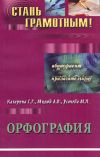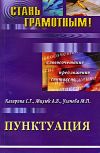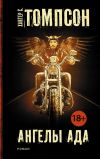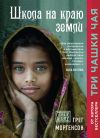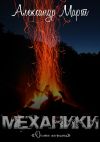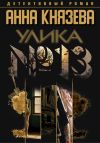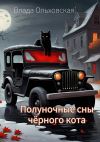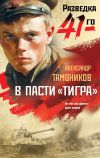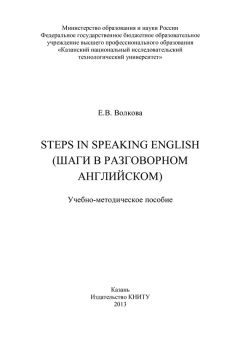
Автор книги: Елена Волкова
Жанр: Учебная литература, Детские книги
сообщить о неприемлемом содержимом
Текущая страница: 2 (всего у книги 4 страниц)
Lesson IV. Extreme sports, Survival, Camping
Vocabulary. Extreme sports.
rock climbing, scuba diving1919
scuba diving – подводное плавание с аквалангом
[Закрыть], free diving2020
free diving – ныряние без акваланга
[Закрыть], windsurfing2121
windsurfing – виндсёрфинг
[Закрыть], snowboarding, skateboarding, parachuting/skydiving2222
parachuting/skydiving – прыжки с парашютом
[Закрыть], water skiing, roller-skating, zorbing/globe–riding2323
zorbing/globe–riding – зорбинг
[Закрыть], paragliding2424
paragliding – параглайдинг, парапланеризм
[Закрыть], cave exploring, mountain biking, quad biking2525
quad biking – катание на квадрациклах
[Закрыть], bungy/bridge jumping2626
bungy/bridge jumping – прыжки с парашютом с высотных зданий и мостов
[Закрыть], helicopter rides, white-water rafting2727
white–water rafting – рафтинг, сплав по бурной реке
[Закрыть]
Scuba diving – explore tropical reefs and shipwrecks, and swim with sharks, eagle rays or dolphins. Take lessons together if you are not yet licensed.
White Water Rafting – an adrenaline packed, rough ride down a torrential river will provided you with hours of enjoyable and challenging adventures.
Sky Diving – for the high of a lifetime take to the skies with this daredevil activity.
Helicopter rides – take an exhilarating helicopter, ride over your city and see the sites from a different viewpoint.
Go cave exploring – the difficulty of this adventure depends on the cave being visited, but will always include crawling and climbing and making extensive use of ropes.
Bridge Jumping – being securely strapped into a body harness, flinging yourself of a bridge is the ultimate adrenaline rush.
Mountain biking – this fun, fast moving sport requires self–reliance, excellent bike riding ability and loads of endurance.
Rock Climbing – climbing a sheer rock face using only the muscles in your arms and legs takes control and strength. This is not for a first time spider man!
Quad biking – get into exploring dirt roads, streams and waterfalls, and nature in general with adrenaline filled rides.
Zorbing – sport of rolling downhill in an orb, generally made of plastic.
Exercise 1. Ask and answer about your sport experience, using words from vocabulary.
Example. Have you ever been scuba diving?
Exercise 2. Talk to other students and find out:
1. Who has done dangerous sports?
2. Who enjoyed them?
3. Who hated them?
4. Who wants to try them?
5. What other kinds of sport have they done? Were they dangerous?
6. Will you allow your children to try dangerous kinds of sport?
7. When did you last play volley– ball?
8. Do you prefer to play volley-ball on the beach or at the gym?
9. Which of you does your morning exercise every day?
10. Did your parents go in for sports in their childhood?
Exercise 3. Read the texts.
Going up
In 1953, Sir Edmund Hillary and Tenzmg Norgay climbed to the top of Mount Everest. The next challenge was to climb it without bottled oxygen. This was the goal of Austrian climbers Peter Habeler and Reinhoid Messner. Doctors said they were crazy and told them not to try it. They tried it anyway. On 8 May 1978, they were about 800 meters from the top of Everest. They woke at 3a.m. and began preparing. It took them two hours to get dressed. Every breath was precious2828
precious – very valuable and important
[Закрыть]and they used their hands to communicate. Climbing was slow. Messner thought he was going to burst like a balloon. At 8,800 meters, they stopped and lay down every few steps because of the lack of oxygen. But between one and two in the afternoon they achieved their 'impossible' goal. They reached the top of Mount Everest without oxygen.
Going down
Most people can hold their breath long enough to dive to the bottom of a swimming pool, but on 17 August 2002, Tanya Streeter went a lot, lot deeper. The 29-year-old held her breath for 3 minutes 26 seconds and became the world free-diving champion. She dived 160 meters below the surface of the sea (that's further than three football pitches). During the dive her lungs shrank2929
to shrink (Past Indefinite shrank) – to get smaller
[Закрыть]to the size of oranges. Her heart slowed to fifteen beats a minute and she sang her national anthem in her head to control her fear. Tanya says that her mental strength is more important than her physical strength. 'I am a very determined person. When I decide to do something, I do it. «Redefine your limits» is my motto3030
motto – a phrase that expresses your believes
[Закрыть].
Exercise 4 . Look through the texts again and mark the statements true, false or don’t know. Retell this text, using this plan and word combinations.
1. Habeler and Messner didn't listen to their doctors.
2. It took them two hours to go 800 meters.
3. The main problem was breathing.
4. They were given an award for their achievement.
5. Tanya Streeter holds the world record for holding her breath.
6. She has a good trainer.
7. She was afraid during her dive.
8. She didn't know how to control her fear.
9. She feels that being physically strong isn't the most important thing.
physical/mental strength – the physical or mental ability to deal with difficult situations
control your fear – make yourself feel less frightened
rely on – trust or depend on someone or something
a challenge – something new, exciting or difficult to do
achieve your goal – succeed in getting the result you wanted or hoped for
believe in yourself – be sure that you will do everything all right
Exercise 6. Answer these questions:
1. Which activities need a) mental strength, b) physical strength or c) both?
2. What are you afraid of? E.g. flying, crowded places, heights, etc.
3. Do you do anything to help control your fear? If yes, what?
4. What are your goals at the moment? How will you achieve them?
5. Do you enjoy a challenge at work/in your leisure time?
6. Who or what do you rely on most in times of need?
7. How to believe in yourself?
8. What helps you to overcome difficulties?
9. Do you become nervous easily?
Vocabulary. Character features.
determined – never let anyone/anything stop you
intelligent – can understand things quickly
confident – feel sure
brave – be afraid of nothing
ambitious – want to be successful and powerful
generous – give your time and money to other people
talented – have a lot of natural abilities
reliable – always do what you say you will do
Exercise. 7. Tell another student about people you know who have each of the characteristics above.
Example. My friend's really generous. He always lends me money.
Exercise 8. What kind of people do you think Habeler and Messner are? What words do you think describe them?
Vocabulary . Difficult situations.
Abilities – skills
Deal with – cope with
Place to sleep outside – shelter
Try very hard – push yourself
Nature – wilderness
Something difficult to do – challenge
Exercise 9. Ask and answer these questions changing the underlined words with the words above:
1. How long do you think you could survive in the wilderness?
2. What survival skills do you have?
3. Could you build a shelter in a forest?
4. What is the biggest challenge in your life at the moment?
5. Do you always push yourself in difficult situations?
6. Do you cope with new situations well (e.g. living in a different city)?
Exercise 10. Read the speech of the instructor.
Good evening and thank you for coming to find out about the Pleasantville Survival School. My name's Daniel Johnson. I started the school and I'm the School's chief instructor. I learned my survival skills while I was in the army and since then I've used them all over the world. Before starting the Pleasantville Survival School, I worked in other well-known survival schools. My real aim for this school is to help people discover nature and outdoor life but also to learn and to have fun. We run a variety of courses but our basic survival course lasts a weekend and takes place throughout the year. This course teaches you the basic skills that you need to survive in the wilderness and during the course you have a lot of opportunities to practice these skills. This course costs $139 per person.
If you want an even bigger challenge, our extreme survival course takes place between November and February when the conditions are more difficult. These courses also last for a weekend and cost $149 per person.
The extreme survival course teaches you to survive in a cold and wet environment. The course offers you the chance to push yourself, both physically and mentally. No tents, no gas cookers, just you and the wilderness. You learn to find and prepare food and cook it over an open fire. You learn to build a shelter and then you actually sleep in it. Most importantly, you learn a lot about yourself and how well you can cope with unexpected situations. A few final practical details. You have to be at least 18 years old to come on the courses. The full cost of the course needs to be paid at least 4 weeks before the course begins and remember that there are discounts for groups of 4 or more. Well, I hope that gives you some idea of what we do. And now if there are any questions…
Exercise 11. Read the speech again and answer the questions.
1. What is the name of the chief instructor of the Pleasantville Survival School?
2. What was his previous work?
3. What are his aims?
4. Tell about basic survival course. How long does it last? When does it take place? How much does it cost?
5. Tell about extreme survival course. How long does it last? When does it take place? How much does it cost?
6. Which opportunities do the courses offer?
7. Which skills do the courses develop?
8. What can people learn from these courses?
9. Which course would you like to take? Why?
Vocabulary. Survival equipment.
torch, box of matches, first–aid kit, chocolate, water, penknife, rope mirror, tent, blankets, pen and paper, scissors, umbrella, radio, plastic bowl, axe, spade, candles, knife, waste container, thermos, sleeping–bag, insect, repellent
Exercise 12. Tell what survival equipment will be necessary for surviving:
1) in a forest; 2) up a mountain; 3) in a desert; 4) on a river bank; 5) on an island.
Exercise 13. Work in groups. Imagine that you are instructors of the Survival School. Choose the chief instructor of your group. Work out the courses. Tell other students about your school and survival courses. Think about place, time, costs, opportunities, skills, survival equipment, size of groups, age of applicants, etc.
Communication: Telephone calls
Exercise 14. Call your partner, using your name and the name of your company. Choose one of the situations below and leave a message for the boss, Mr. Adams.
– You are ill and can’t go to a meeting.
– You want to leave your fax number.
– Your plane arrives at six o’clock.
Exercise 15. Read these dialogs in pairs and translate them in Russian.
Booking transport


32 though train – проходящий поезд;
33 single ticket – билет в одном направлении;
34 return ticket – билет в обратном направлении;
35 to change – делать пересадку;
36 fare – стоимость проезда;
37 Would you mind telling me when express is due in Edinburg? – Скажите, пожалуйста, когда экспресс прибывает в Эдинбург?
Changing train ticket

38 upper and lower berths– верхняя и нижняя полки
Exercise 15. Imagine that you are going on a business trip in Moscow. Make railway reservation and then change it. This time – table will help you.

Exercise 16. Read this dialog in pairs and translate it into Russian and from Russian into English speaking words combination about the theme of reserving a room.
Reserving a room


Exercise 17. Repeat these new words and expressions and make your own dialogs using these word combinations in pairs.

Lesson V. Illnesses, Symptoms, Treatment, Alternative medicine
Vocabulary. Symptoms.
a headache, a sore throat, a rash, a cold, a backache, a stomachache, an earache, high/low temperature, high/low blood pressure, cough, chill, faint, pain, injure, sickness3232
sickness – тошнота (to feel sick – чувствовать тошноту)
[Закрыть], giddiness3333
giddiness – головокружение (to feel giddy – чувствовать головокружение)
[Закрыть], feel low/poorly3434
feel low/poorly – чувствовать слабость
[Закрыть]
Exercise 1. In pairs, take turns to begin this dialogue. Each time, complete it with a symptom from the vocabulary and a piece of advice from the list below.
Example.
A: What’s the matter? B: I’ve got…
A: You should be careful…
List of tips:
1. Don’t carry heavy things.
2. Wear a hat and scarf when you go outside.
3. Have a hot drink of honey and lemon.
4. Sit quietly and try to relax.
5. Take lots of Vitamin C.
6. Try not to scratch it.
7. Don’t eat any more of that.
Exercise 2 . Read the letters opposite to Doctor Miranda about medical problems and answer the questions.
1. Which symptom(s) from the vocabulary does each reader have?
2. Which reader is: a) worried? b) depressed? c) annoyed?
3. What is the cause of each reader's problem? (animals, cheese, nuts, flowers, chocolate, oysters, pollution, etc.)
Doctor Miranda’s helpline
1. Dear Doctor Miranda,
Two weeks ago, I was enjoying the beautiful spring flowers in the park when I got a terrible sore throat. At home, I was really surprised to see that my eyes were very red. It isn't a cold, but I still don't feel right. It's really annoying because I love playing sports but I really don't want to go outside at the moment. What's wrong with me?
Ashley White, Manchester
2. Dear Doctor Miranda,
I used to eat chocolate every day. But a month ago, I started getting terrible headaches. Then I read an interesting article which said that chocolate can cause this. I was completely shocked. Now I don't eat any chocolate and I feel fine … but it's also a bit depressing. Can I really never eat chocolate again?
Sara Mellon, New York City
3. Dear Doctor Miranda,
My family has two dogs and a cat. I'm at university now and, when I come home for the holidays, I get a rash on my neck and my eyes are really red and sore. It's a bit embarrassing – everyone thinks I'm crying! I'm really worried because my parents think we should find another home for the animals. I don't want them to go. Is it necessary?
Frank Martin, London
Exercise 3. Read and match the problems (1–3) with the answers (a– c).
Doctor Miranda writes back
a) You are not with your animals all the time, so perhaps it won't be necessary for them to live somewhere else. When you are home, try not to touch the dogs or cats too often. They should be given regular baths and of course, they should never sleep on your bed.
b) It sounds as if you have hay fever and are allergic to the pollen from trees and plants. You are doing the right thing. Stay inside and keep the windows shut. Don’t be too worried – you'll be OK when the spring is over.
c) Food allergies can be very frightening because the cause is often difficult to find. You know the cause of your problem, so you'll be fine now. But you shouldn't eat chocolate again. I'm sorry!
Exercise 4. What do you know about homoeopathy and acupuncture? What experience have you had of either of them? Work in groups. Group A: read the text about homoeopathy and complete your half of the table. Group B: read the text about acupuncture and complete your half of the table. Then tell another group about your text.

Homoeopathy
Homoeopathy has two main beliefs. Firstly, homoeopaths believe you should treat the symptoms, not the disease. A homoeopathic doctor looks at the whole person in order to decide which medicine to give. Homoeopaths also believe you only need a very small amount of medicine to get better.
A typical session with a homoeopathic doctor lasts about an hour. He or she asks you about your medical history, your family's medical history and your personality. Homoeopathic medicine is usually in the form of small tablets to put on your tongue.
Millions of people around the world say that homoeopathy works for many kinds of illnesses, it is especially useful for skin problems. The only possible disadvantage of using homoeopathic medicine is the cost. A typical session costs around $60 in the UK. There are no side effects and it is safe for everyone, including babies.
Acupuncture
Acupuncture is based on two main beliefs. Acupuncturists believe we have lines of energy (called meridians) in our bodies. When these meridians are blocked, your body cannot work properly. Acupuncturists also believe they can unblock the meridians so that energy can move around the body and you feel better.
During your first session, the acupuncturist discusses your symptoms and your general health. The acupuncturist treats illnesses by putting thin needles into your body at points on the meridians. The treatment usually lasts about 45 minutes. Patients often get better after just one visit.
Millions of people use acupuncture. It is especially useful for stomach problems. Some people have an 'electric' feeling going up and down the meridians, but it doesn't usually hurt and it is also very safe. A typical session costs around $40 in the UK.
Aromatherapy
Aromatherapy is a form of alternative medicine that uses essential oils for altering a person's mind, mood or health. Today, aromatherapy is widely practiced in North America and Europe. It is used in spa treatments and products such as candles, massage oil, and other relaxation products.
Essential oils can affect almost every organ system in the body. Each essential oil has a unique pharmacological effect, such as antibacterial, antiviral, tranquilizing, and others. This treatment cures pain and anxiety, it increases your energy and improves memory, makes you relaxed, prevents hair loss and solves skin problems.
Essential oils can be used at home by inhalation3535
inhalation – ингаляции
[Закрыть]or topical application3636
topical application – местное нанесение
[Закрыть]. Inhalation is often used for respiratory conditions3737
respiratory conditions – респираторные заболевания
[Закрыть]. Inhalation involves adding 2-3 drops of essential oil of eucalyptus3838
eucalyptus – эвкалипт
[Закрыть], rosemary3939
rosemary – розмарин
[Закрыть], tea tree4040
tea tree – чайное дерево
[Закрыть], or other oil to hot water and holding the face over the pot with a towel draped to form a tent.
Exercise 5. Discuss. What doctor would you see to treat the following illnesses/injures – a homoeopath, an acupuncturist or a traditional doctor? Why?
flu a broken arm a pain in your chest backache poisoning migraine nervousness
Exercise 6. Match the person to the reason they give for living a long time.
physical exercise, mental exercise, thinking positively
1. “I can't believe it but I'm 87! I used to smoke but I gave up when I was 55.1 don't do much exercise, but I like to keep my brain active. I love chess.”
2. “I'm 89 years old. I used to do a lot of sport but I don't do my now. The most important thing for me is to feel good about life and laugh every day.”
3. “I'll be 85 on my next birthday. The thing that keeps me young is dancing. I didn't use to do any physical exercise but now I dance every day.”
Exercise 7. Quiz. Retirement. How much do you know about it?
On average, which nationality lives the longest?
a) the Japanese
b) the Italians
c) the Swedish
What was the average lifespan two thousand years ago?
a) twenty six years
b) thirty six years
c) forty six years
By 2050, what percentage of the world's population will be sixty– five or older?
a) 2 %
b) 10 %
c) 20 %
On average, which groups of people live longer?
a) smokers or non-smokers?
b) single people or married people
c) pet owners or non-pet owners?
Exercise 8. Quiz. Stress. For each situation, write your Stress Factor (1–5).
1. No problem!
2. Not happy, but keeping cool!
3. Getting a little tense!
4. Heart is beating faster!
5. Major stress alert!
– You wait in a bus queue for twenty minutes. When the bus comes, you can't get on because there are too many people on it. Stress Factor:__________
– You walk to work. It starts raining heavily and you haven't got an umbrella. You get completely soaked. Stress Factor:__________
– You take some clothes back to a shop. The assistant won't give your money back because you've lost the receipt. Stress Factor: __________
– You phone a customer services line to try and fix your computer. You don't manage to speak to a person, just a machine. Stress Factor: __________
– You're in your car at traffic lights. Another driver shouts at you for not driving away quickly enough. Stress Factor:__________
– You go to the cinema to see a really good film. Some people next to you don't stop talking and eating loudly. Stress Factor: __________
– You play a game of tennis with a friend. You don't play well and he/she beats you easily. Stress Factor: __________
– You're just about to go to work/school. You realize you can't find an important document/piece of homework. Stress Factor: __________
– You're in bed and you can't sleep because the dog next door is barking. Stress Factor:__________
– You want to pay for your shopping but the shop assistant is chatting on the phone and not looking at you. Stress Factor:__________
Exercise 9. Discuss these questions.
1. Which of the following things do you do to relax?
watch TV, do yoga, talk to a friend, play a physically hard sport, play computer games, have a bath, sing, close your eyes and breathe deeply, listen to music, have a massage, cry, speak with animals, hug a teddy bear, read a book, watch a film, go for a walk
2. What other things do you do?
3. Are you someone who gets stressed easily?
4. What things make you stressed?
5. How do you feel when you are stressed?
Communication: Telephone calls
Leaving voicemail messages
Exercise 10. Add phrases a-j to the flow chart for leaving a message.
a) I work for…
b) You can reach me every day between three and six.
c) Give me a ring. My number is…
d) Speak soon.
e) We met at a conference.
f) Call me at the office.
g) I’m in the … department.
h) Just calling to say…
i) It’s in connection with…
j) Or I’ll try calling again tomorrow.












